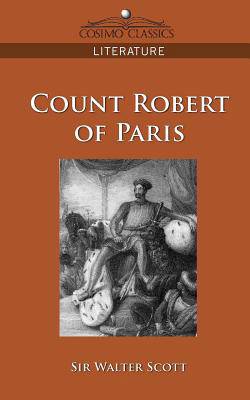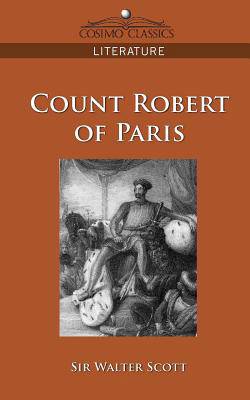
Je cadeautjes zeker op tijd in huis hebben voor de feestdagen? Kom langs in onze winkels en vind het perfecte geschenk!
- Afhalen na 1 uur in een winkel met voorraad
- Gratis thuislevering in België vanaf € 30
- Ruim aanbod met 7 miljoen producten
Je cadeautjes zeker op tijd in huis hebben voor de feestdagen? Kom langs in onze winkels en vind het perfecte geschenk!
- Afhalen na 1 uur in een winkel met voorraad
- Gratis thuislevering in België vanaf € 30
- Ruim aanbod met 7 miljoen producten
Zoeken
Omschrijving
"By our Lady of the Broken Lances," said the Crusader. "I would not that the Turks were more coureous than they are Christian, and am well pleased that unbeliever and heathen hound are a proper description for the best of them..." -from Count Robert of Paris They were the literary phenomenon of their time: The Waverly novels, 48 volumes set in fanciful re-creations of the Scottish Highlands (and other lands) of centuries past, published between 1814 and 1831 and devoured by a reading public hungry for these sweeping, interconnected melodramas. The series popularized historical fiction, though they're also abundant in astute political and social commentary. Count Robert of Paris, Volume 46 of Waverly, is part of the fourth and final series in Scott's Tales of My Landlord. Ranging over the Near East, this is a tale of adventure and romance set during the first Crusades in the late 11th century. Scottish novelist and poet SIR WALTER SCOTT (1771-1832), a literary hero of his native land, turned to writing only when his law practice and printing business foundered. Among his most beloved works are The Lady of the Lake (1810), Rob Roy (1818), and Ivanhoe (Waverly Vols. 16 and 17) (1820).
Specificaties
Betrokkenen
- Auteur(s):
- Uitgeverij:
Inhoud
- Aantal bladzijden:
- 416
- Taal:
- Engels
Eigenschappen
- Productcode (EAN):
- 9781596054295
- Verschijningsdatum:
- 1/11/2005
- Uitvoering:
- Paperback
- Formaat:
- Trade paperback (VS)
- Afmetingen:
- 127 mm x 203 mm
- Gewicht:
- 449 g

Alleen bij Standaard Boekhandel
+ 54 punten op je klantenkaart van Standaard Boekhandel
Beoordelingen
We publiceren alleen reviews die voldoen aan de voorwaarden voor reviews. Bekijk onze voorwaarden voor reviews.









